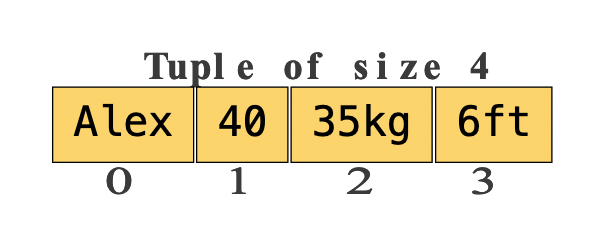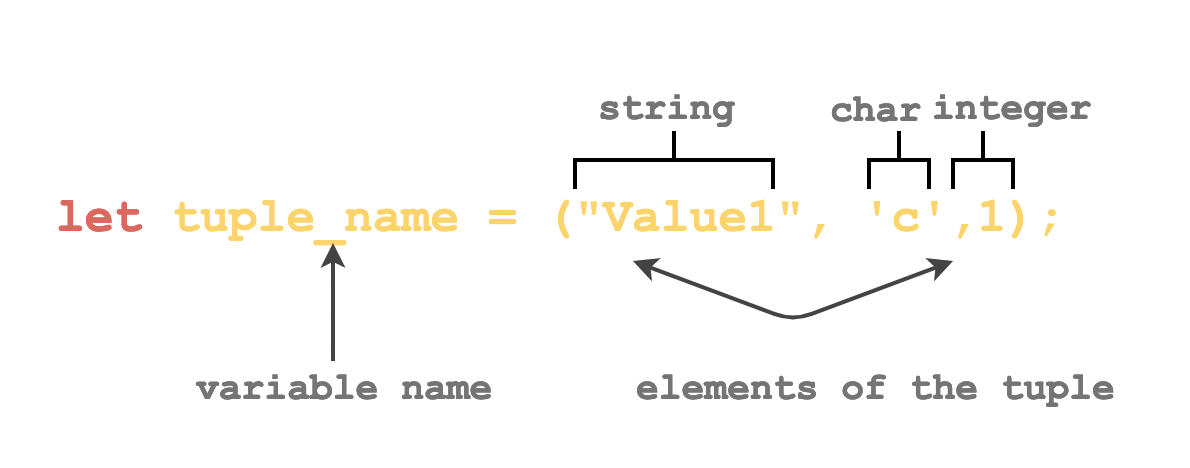[Avg. reading time: 5 minutes]
Tuples
Tuples are heterogeneous sequences of elements, meaning, each element in a tuple can have a different data type. Just like arrays, tuples are of a fixed length.

Define a Tuple
A tuple can be defined by writing let followed by the name of the tuple and then enclosing the values within the parenthesis.
Implicit Inference

Explicit Inference

#[allow(unused_variables, unused_mut)] fn main() { //define a tuple let person_data = ("Rachel", 30, "50kg", "5.4ft"); // define a tuple with type annotated let person_data2 : (&str, i32, &str, &str) = ("Ross", 31, "55kg", "5.8ft"); println!("{}",person_data.0); println!("{}",person_data.1); println!("{}",person_data2.0); }
Assign Tuple value to individual variables
#[allow(unused_variables, unused_mut)] fn main() { //define a tuple let person_data = ("Rachel", 30, "50kg", "5.4ft"); let (name,age,wt,ht) = person_data; println!("{}",name); println!("{}",age); println!("{}",wt); println!("{}",ht); }
Mutable Tuples
fn main() { //define a tuple let mut person_data = ("Rachel", 30, "50kg", "5.4ft"); //print the value of tuple println!("The value of the tuple at index 0 and index 1 are {} {}", person_data.0, person_data.1); //modify the value at index 0 person_data.0 = "Monica"; //print the modified value println!("The value of the tuple at index 0 and index 1 are {} {}", person_data.0, person_data.1); }
Print using Debug Trait
fn main() { //define a tuple let mut person_data = ("Rachel", 30, "50kg", "5.4ft"); //print the value of tuple println!("Tuple - Person Data : {:?}", person_data); }